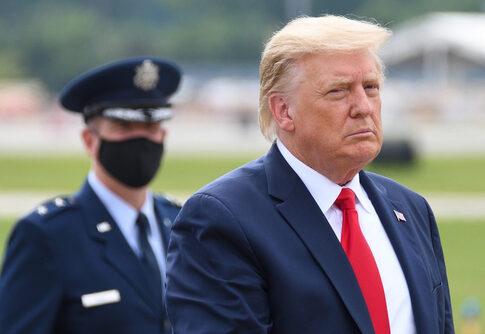Donald Trump is attempting a strategic legal maneuver to move his hush money case from New York to federal court. Legal debate centers on presidential immunity and conflicts of interest. This decision may have implications for his November sentencing and political future. The Appellate Court’s decision could have an impact on Trump’s strategy.
Trump’s Legal Strategy Unfolds
Former President Donald Trump is attempting to transfer his criminal hush money case from a New York court to federal jurisdiction. His legal team claims the jury misinterpreted evidence pertaining to his duties as president, which are protected by a Supreme Court decision. Trump was convicted on 34 felony counts of falsifying business records in exchange for a hush money payment to Stormy Daniels. The defense claims that these actions should be considered under the presidential immunity doctrine.
U.S. District Judge Alvin Hellerstein previously denied Trump’s request, calling the payments private acts. Trump’s appeal to the U.S. Court of Appeals for the Second Circuit seeks to overturn this decision. If successful, this move could influence his sentencing, currently set for November 26, and alter the political landscape if Trump regains office.
Trump's lawyers push to move 'hush money case' to federal court, potentially paving the way to end prosecution if he regains the presidency pic.twitter.com/6N1UAavyii
— TRT World Now (@TRTWorldNow) October 15, 2024
Arguments and Implications
Trump’s legal team asserts that Judge Hellerstein misapplied legal precedents and ignored critical evidence. They argue that federal law should apply in cases involving federal officers such as the president. The legal team, in particular, raises concerns about potential conflicts of interest and political motivations behind the prosecution, calling the current legal proceedings into question. Their arguments also include lifting the restrictions on Trump’s ability to discuss the case publicly.
“Nothing in the Supreme Court’s opinion affects my previous conclusion that the hush money payments were private, unofficial acts, outside the bounds of executive authority,” Judge Hellerstein wrote.
The legal proceedings call into question the integrity of the evidence and whether certain parts should be excluded because of presidential immunity. As the sentencing date approaches, Trump’s legal team warns that improper handling of the immunity defense could result in “irreparable harm.”
A US judge ruled that former President Donald Trump cannot transfer his New York hush-money case to federal court ahead of his scheduled Sept. 18 sentencing. https://t.co/tilRmCcxZK
— Bloomberg Law (@BLaw) September 3, 2024
Impact on Political Future and Sentencing
The decision on jurisdiction transfer has the potential to significantly impact Trump’s legal and political trajectory. If Trump’s appeal is successful, the prosecution could be dropped if he wins the presidency.
Judge Juan Merchan is expected to rule on Trump’s dismissal request based on presidential immunity, but the ongoing litigation casts doubt on the scheduled November sentencing date.
The case combines legal complexities and political intrigue, with Trump navigating complex legal challenges while maintaining his stance on reelection prospects. The upcoming decision by the appellate court will shape not only this legal battle, but also Trump’s entire political career.
Sources:
- Trump again asks appeals court to move New York hush money case to federal court
- Trump urges appeals judges to move hush money case to federal court


